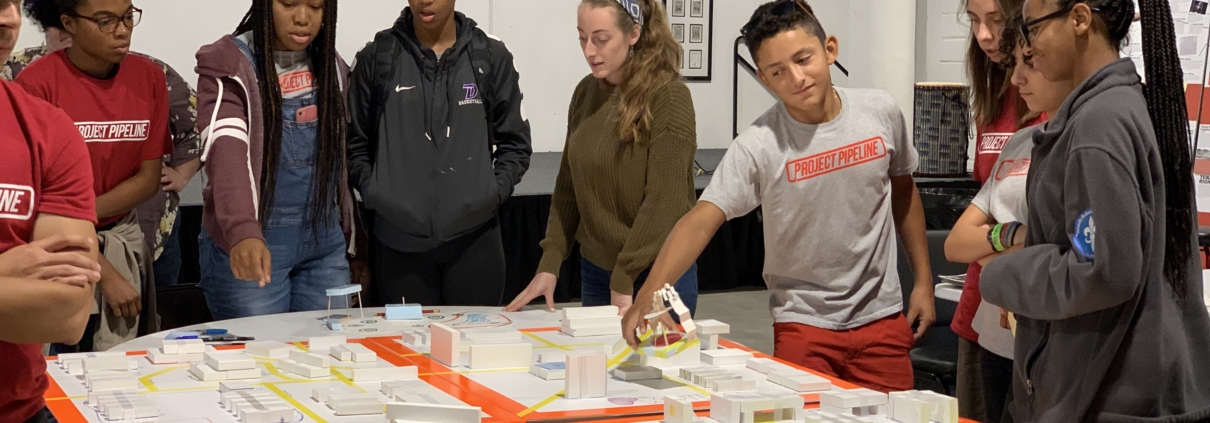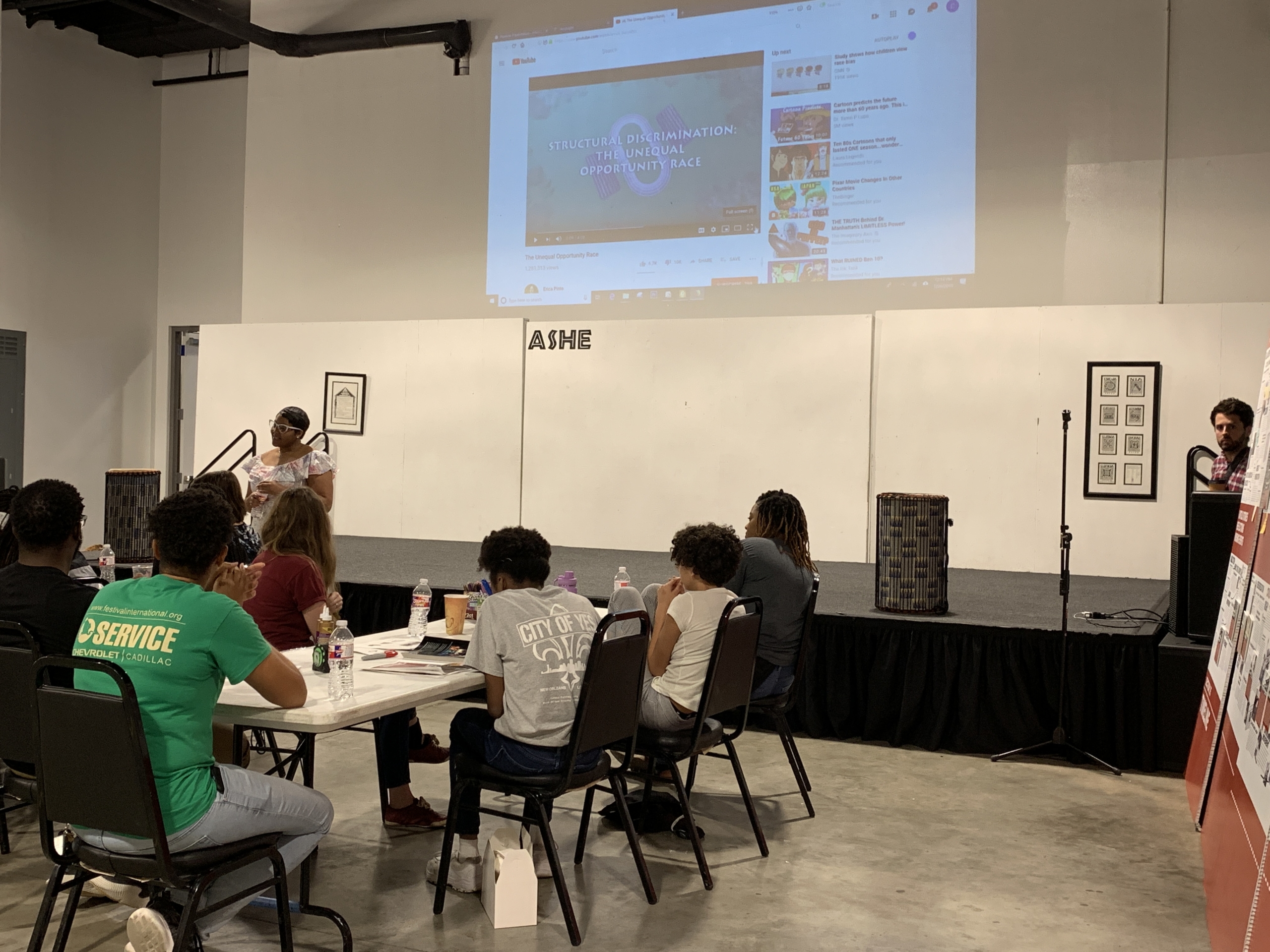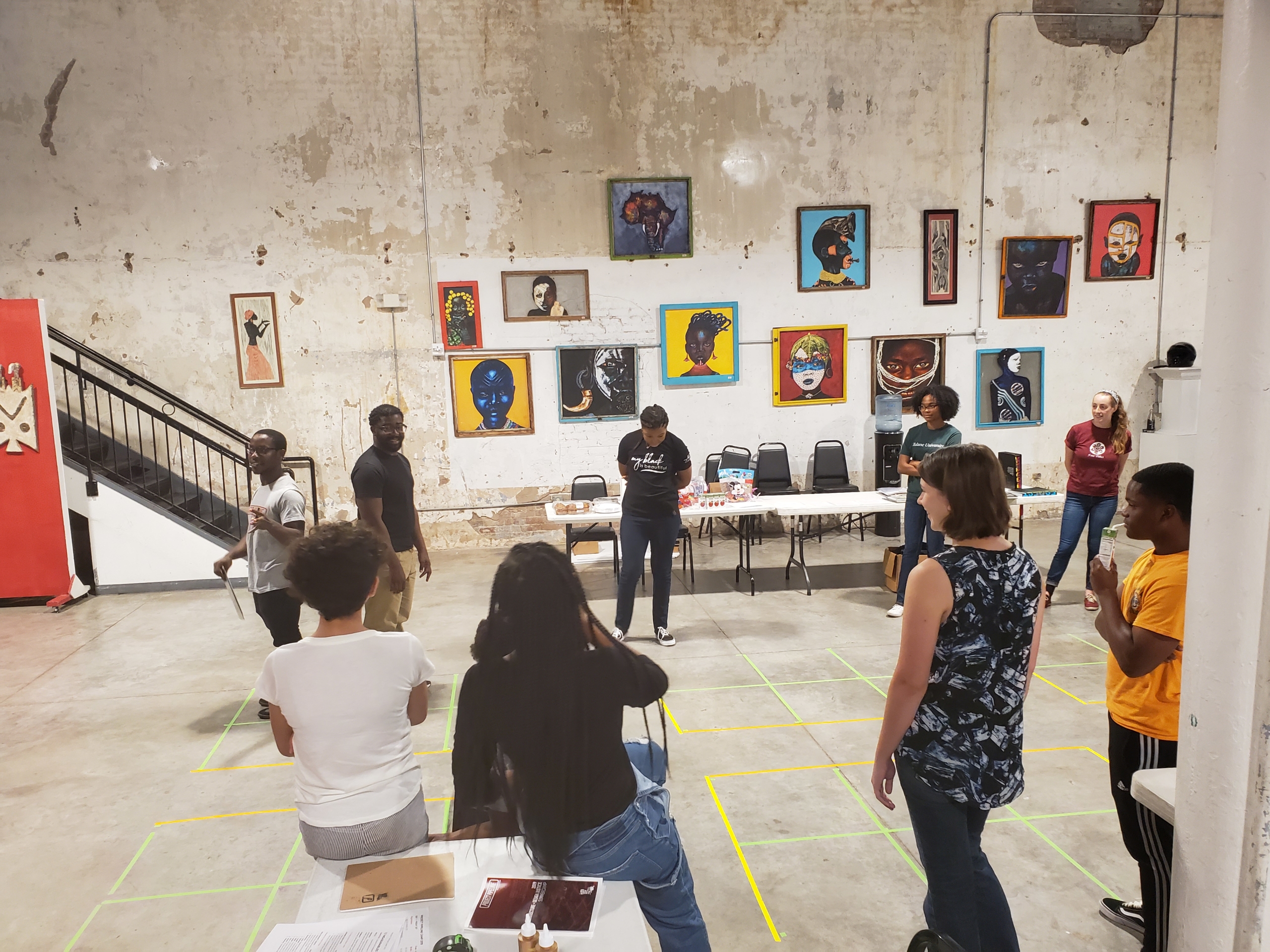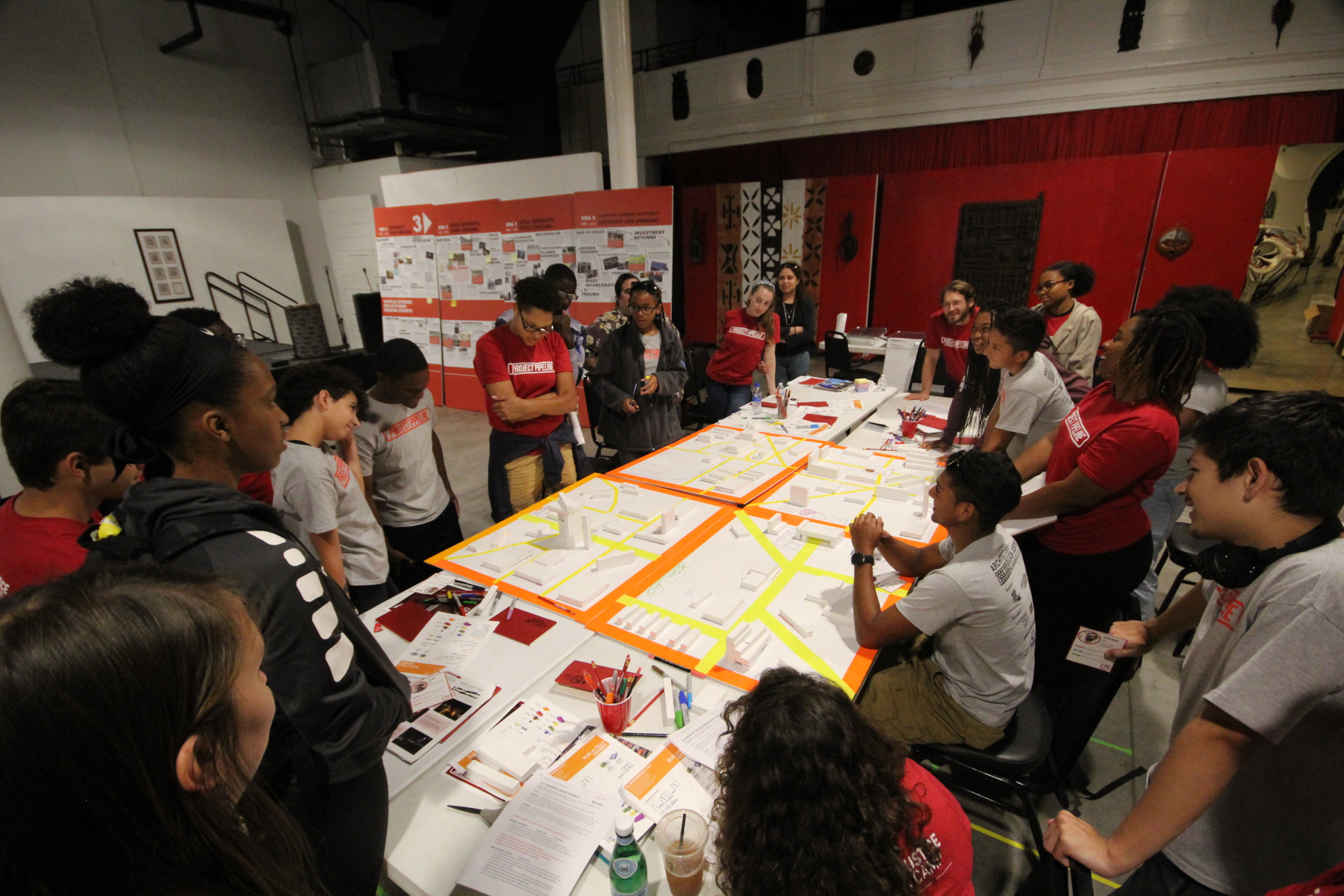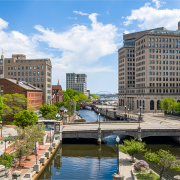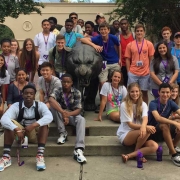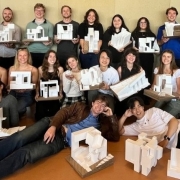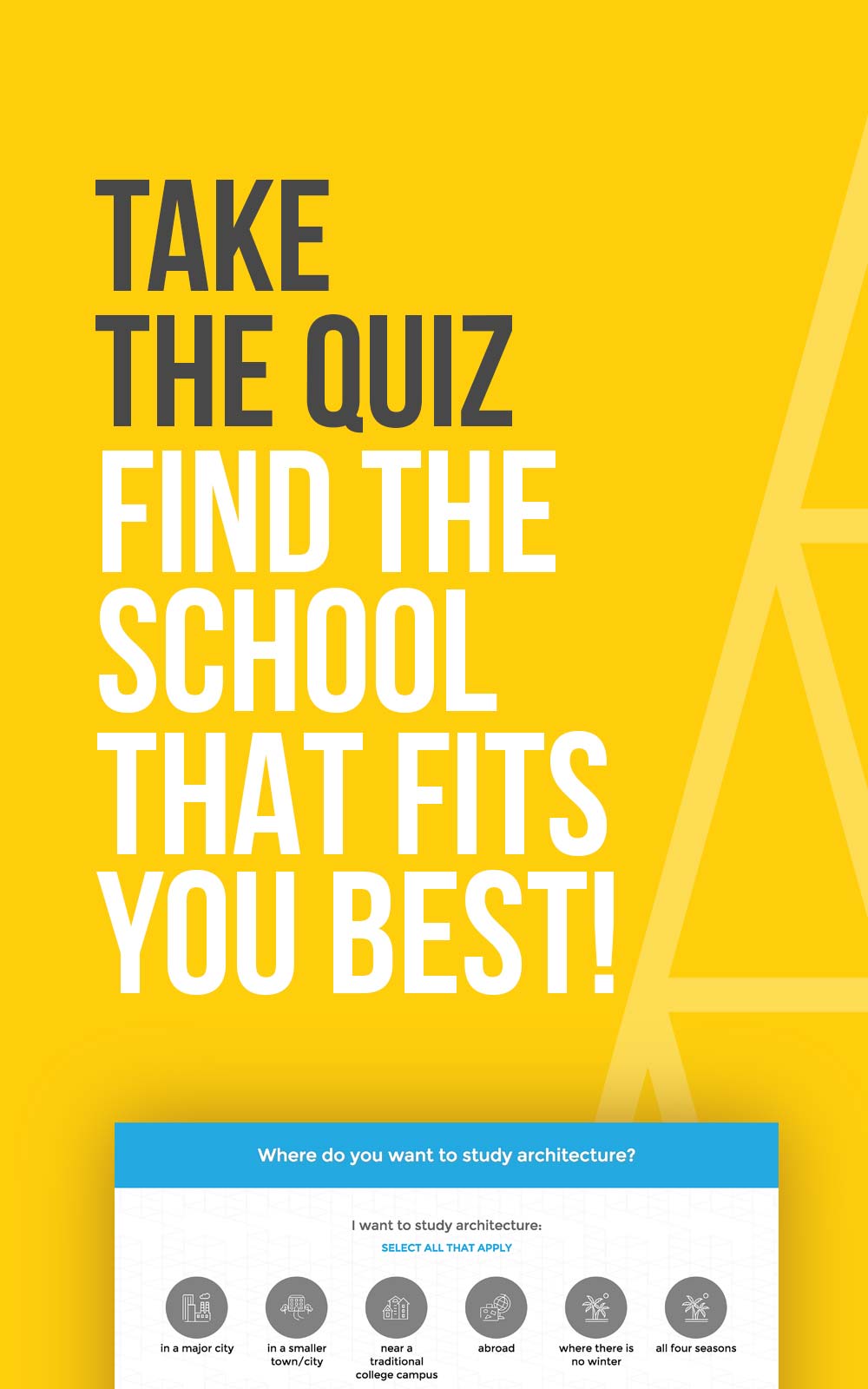NOMA LA: Project Pipeline Summer Camp
Summer 2020 has been a unique experience, to say the least. Summer architecture programs, as they once were, have been forced to pivot quickly and plan for a completely virtual experience or cancel altogether. Although COVID-19 has drastically shaped the experience of many summer programs across the country, we did not want to let that stop us from sharing about a few of them. Earlier this fall, we sat down with the Louisiana Project Pipeline Program Coordinator, Bryan Bradshaw, to get his perspective on what makes the camp he coordinates so unique. He started by telling us the origin story of Project Pipeline, before walking us through its transformation under his leadership.
The Project Pipeline Summer Camp is part of a broader community-focused program called Project Pipeline, “a mentorship program established by National Organization of Minority Architects (NOMA) in 2002 designed to encourage equality within the profession and provide an introduction to young students interested in the world of architecture and design.” The program currently consists of a “summer camp and a workshop series throughout the year, all within the framework of achieving a sustained mentorship program.” The Summer Camp gives rising 8th through 12th graders the opportunity to work with local architects, designers, and community professionals to design a building or block for their community. With a focus on social justice, design justice, urban planning, and architecture, this camp seeks to “empower young people to affect change in their community through design using the city as a classroom.”
One mentor had this to say about Project Pipeline mentoring program:
[It] teaches a democratized practice of community-based design in the tradition of the earliest Black architects at Tuskegee and the activist designers of ARCH, the Architects’ Renewal Committee in Harlem. We teach our students that design is political. We build neighborhoods and cities collectively, pushing back against the individualistic culture of ‘starchitecture’ that helps to perpetuate White and male domination in our profession.
In NOMA Louisiana Project Pipeline, and in other programs around the United States, we teach that merely changing who is represented in positions of power is not enough to transform our built environment. We are changing how we practice. My fellow mentors are not just Black and other people of color; they’re architects, designers, and planners who actively seek to create a more just and equitable world through their work. The students and mentors I’ve met through Project Pipeline have become my mentors, employers, employees, and best friends. They’re the people I learn from and the people I cite; an ever-expanding community seeking justice in, and through, the built environment. Project Pipeline has the power to transform the design professions at every level, for everyone. The state of the world reminds me daily why it’s necessary that we do so.
-Chris Daemmrich, a Project Pipeline Mentor
Responding to the global pandemic, Bradshaw and his team pivoted to host a completely virtual, weeklong camp that drew students from New Orleans and as far as the Carolinas. Students outside of New Orleans were shipped the materials backpack (see image below), while the locals got to meet their mentors from a distance when they came to drop the backpack off on the students’ doorsteps. The camp attendees each received model-making materials, legos, pens and paper, and a workbook guide for the week in the backpacks. The week was filled with daily one-on-one zoom calls with mentors, along with critiques and model-making, concluding with a presentation to peers and mentors. After completion of the camp, they also received a NOMA Louisiana mask, camp certificate and copy of three books: Expanding Architecture: Design as Activism, African American Architects: Embracing Culture and Building Urban Communities, and Dark Space: Architecture, Representation, Black Identity.
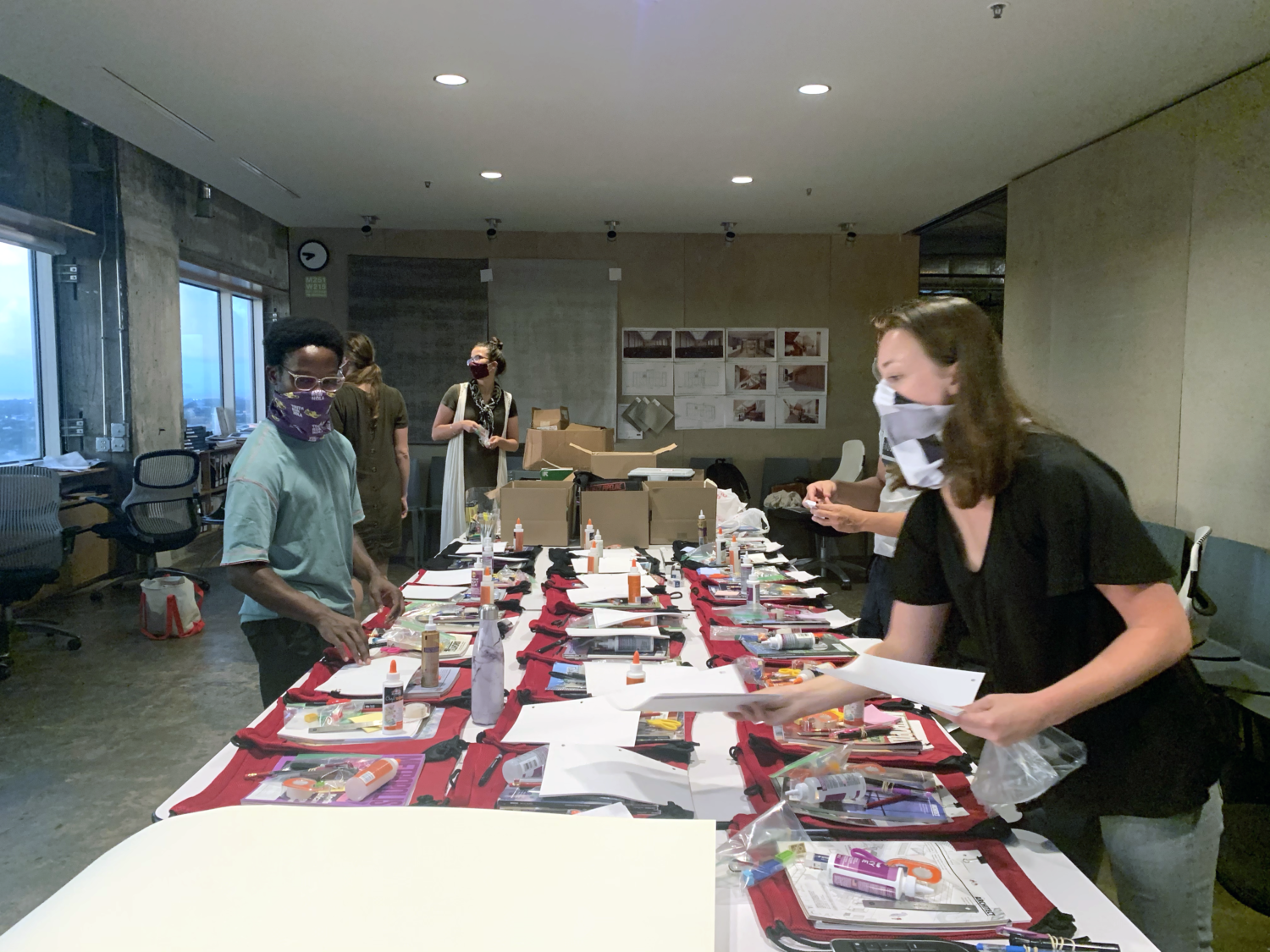
Bradshaw and his team assemble material packets for the virtual camp.
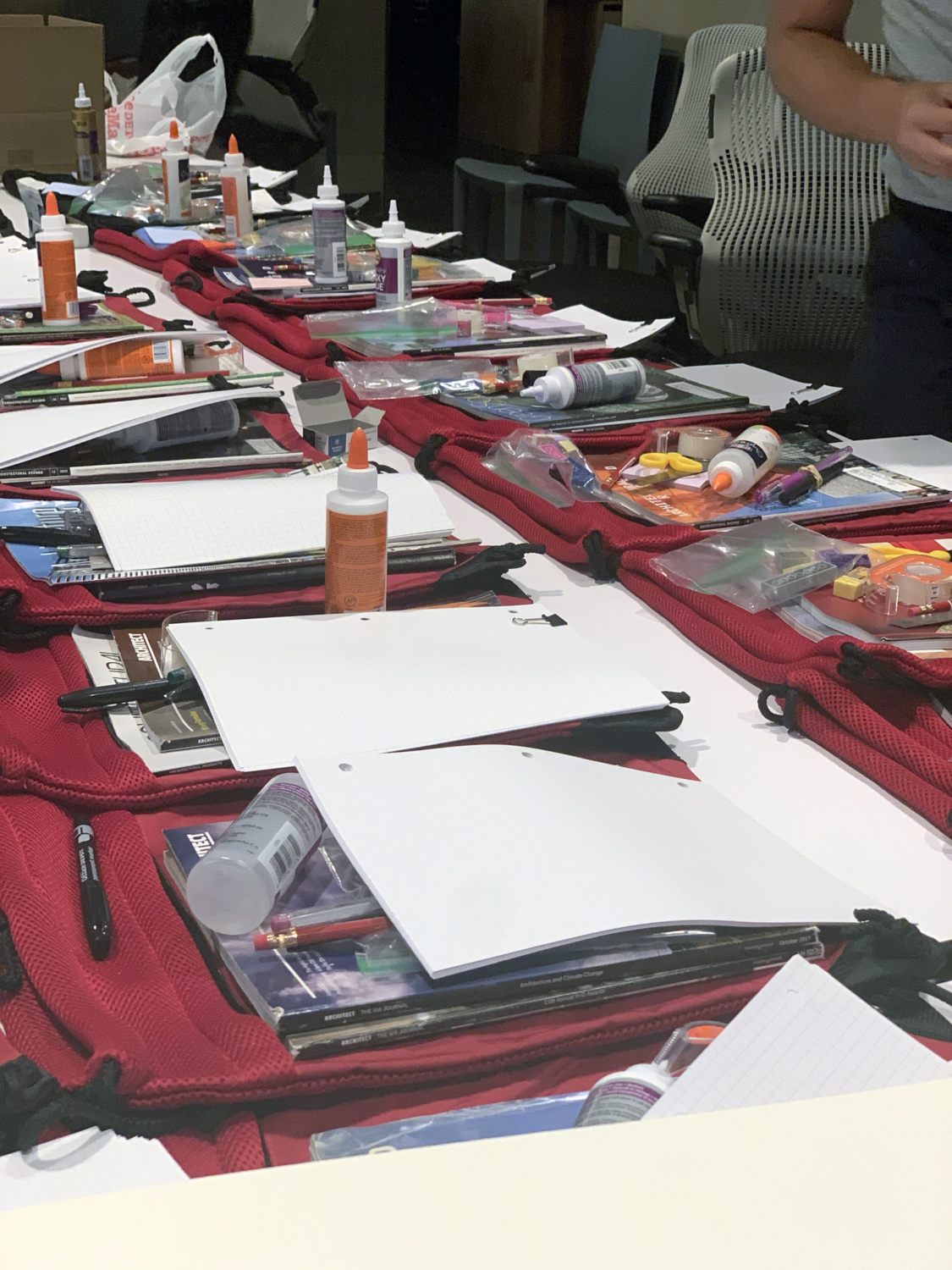
Backpacks packed with model-making materials, legos, pens and paper, architecture magazines, and a workbook guide for the week.
Typically, the camp focuses on a collective neighborhood that is created by the students’ response to functional needs in their build environment; though the virtual format afforded a new opportunity to have the students think more in-depth about their personal communities. The students were asked to design an ideal “city block” in their area and make a list of functional needs that would specifically enhance the quality of life for their neighbors. The students were then given a prompt to design the space of one of the functional needs on the block.
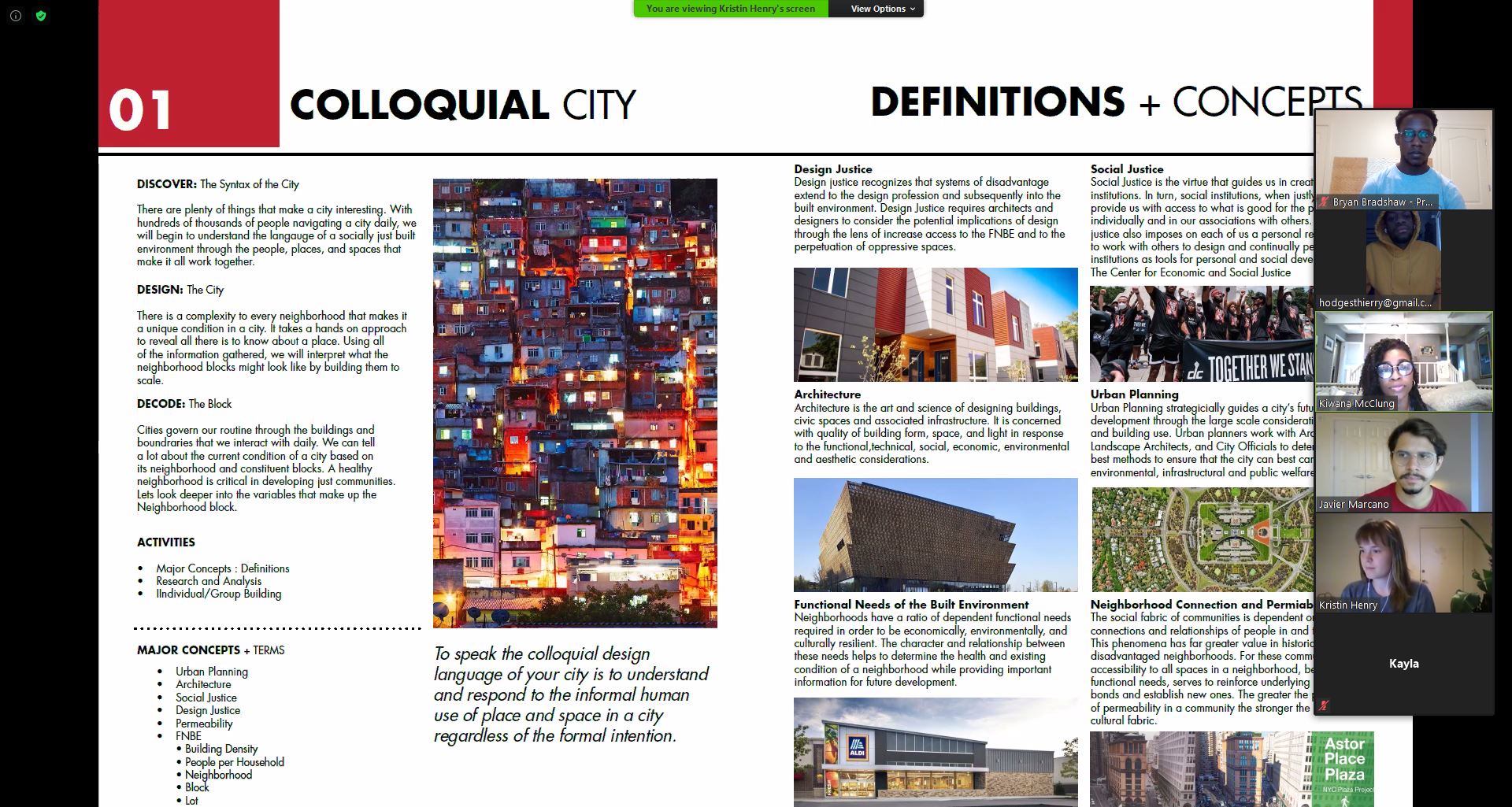
Virtual presentation on the assignment made by Bradshaw and his team.
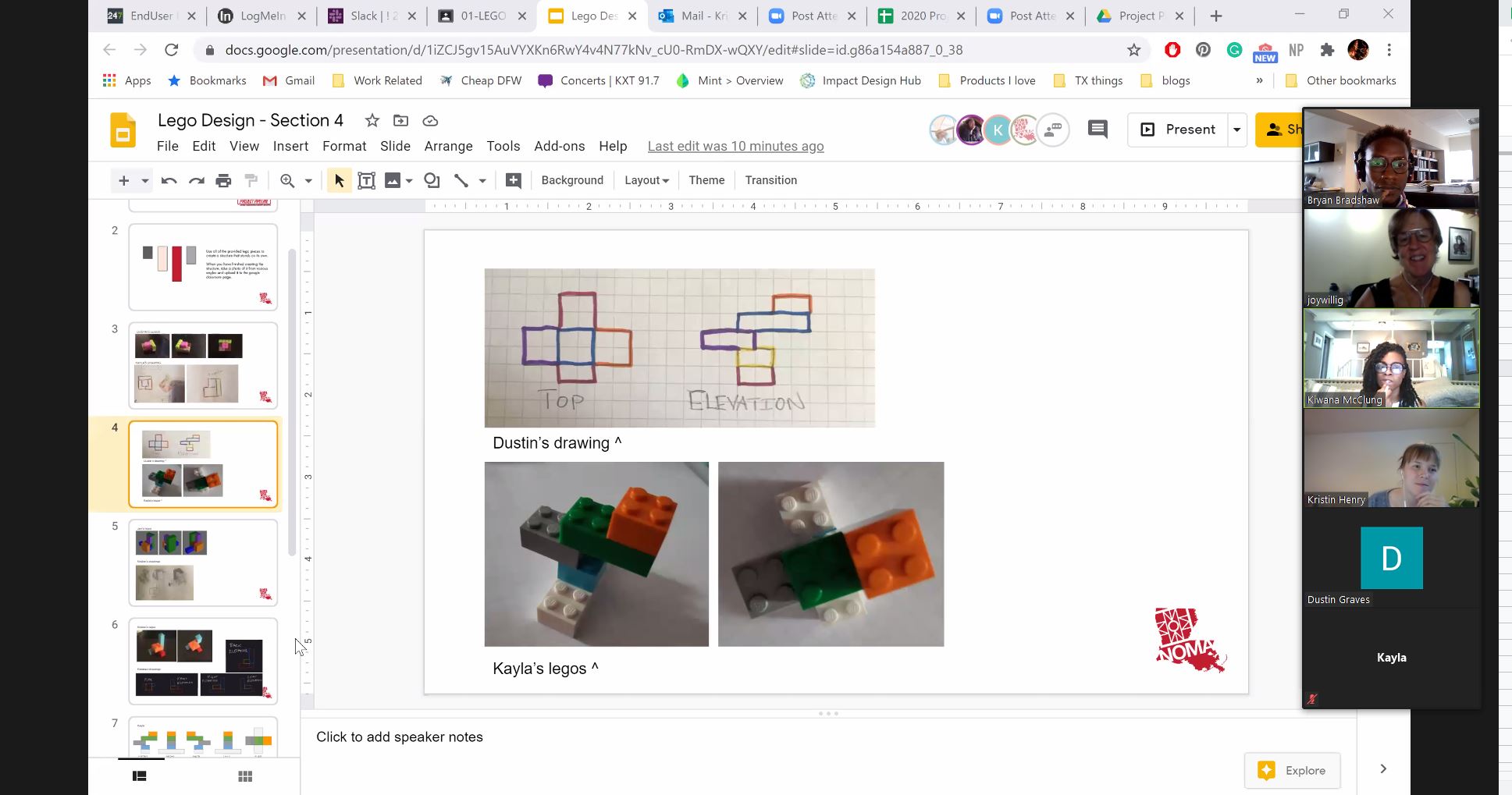
Mentor teams review design ideas and teach about design representation through plan, section, and elevations using Legos.
When the camp was held in person, the students were challenged to design a proposal for a city block, then pass it to another team and that team was allowed to make changes, but only after consulting the original design team. This challenge built communication skills and helped the students better understand their own design decisions and the decisions of others.
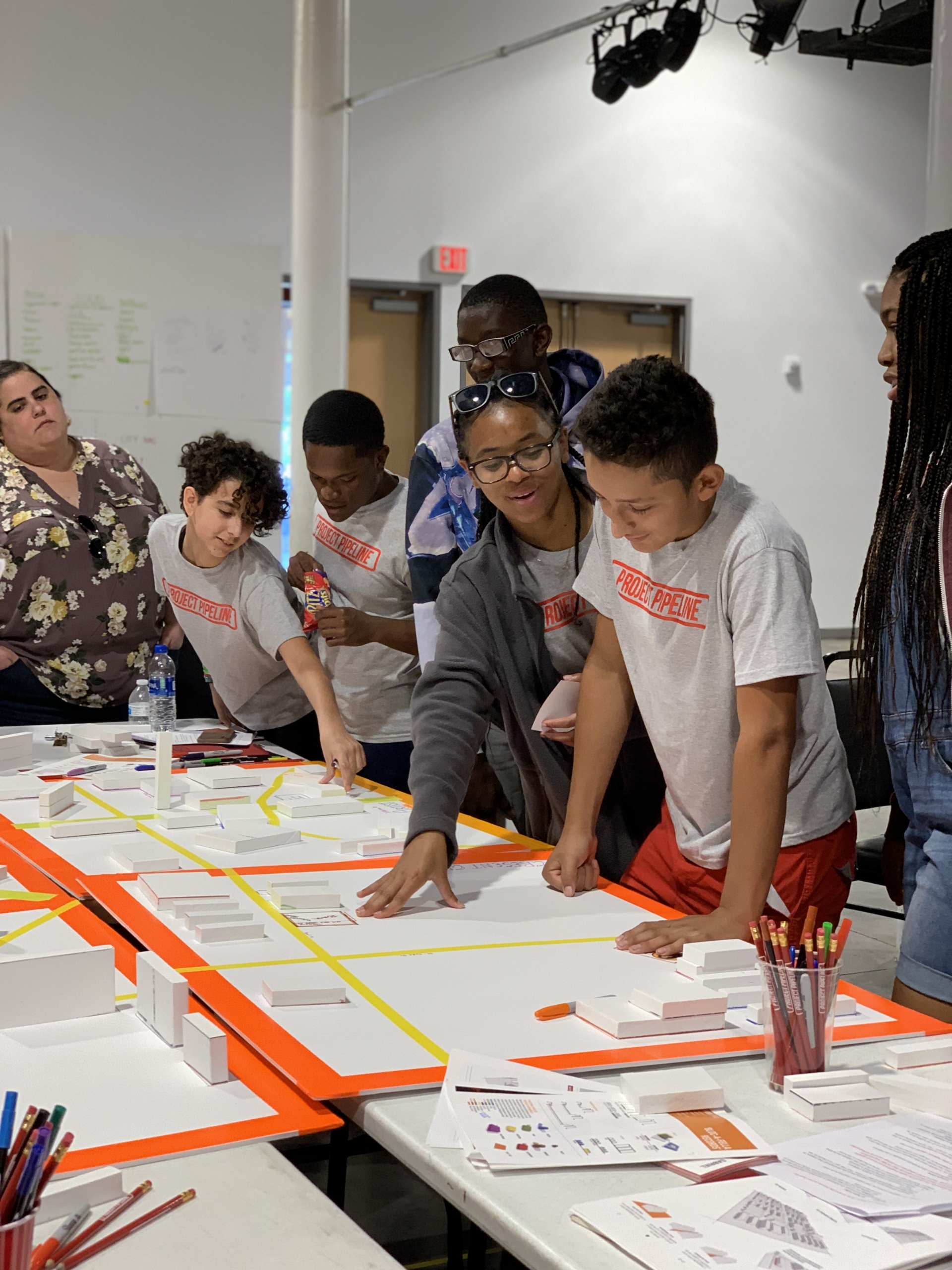
Students partner and collaborate to design a city block.
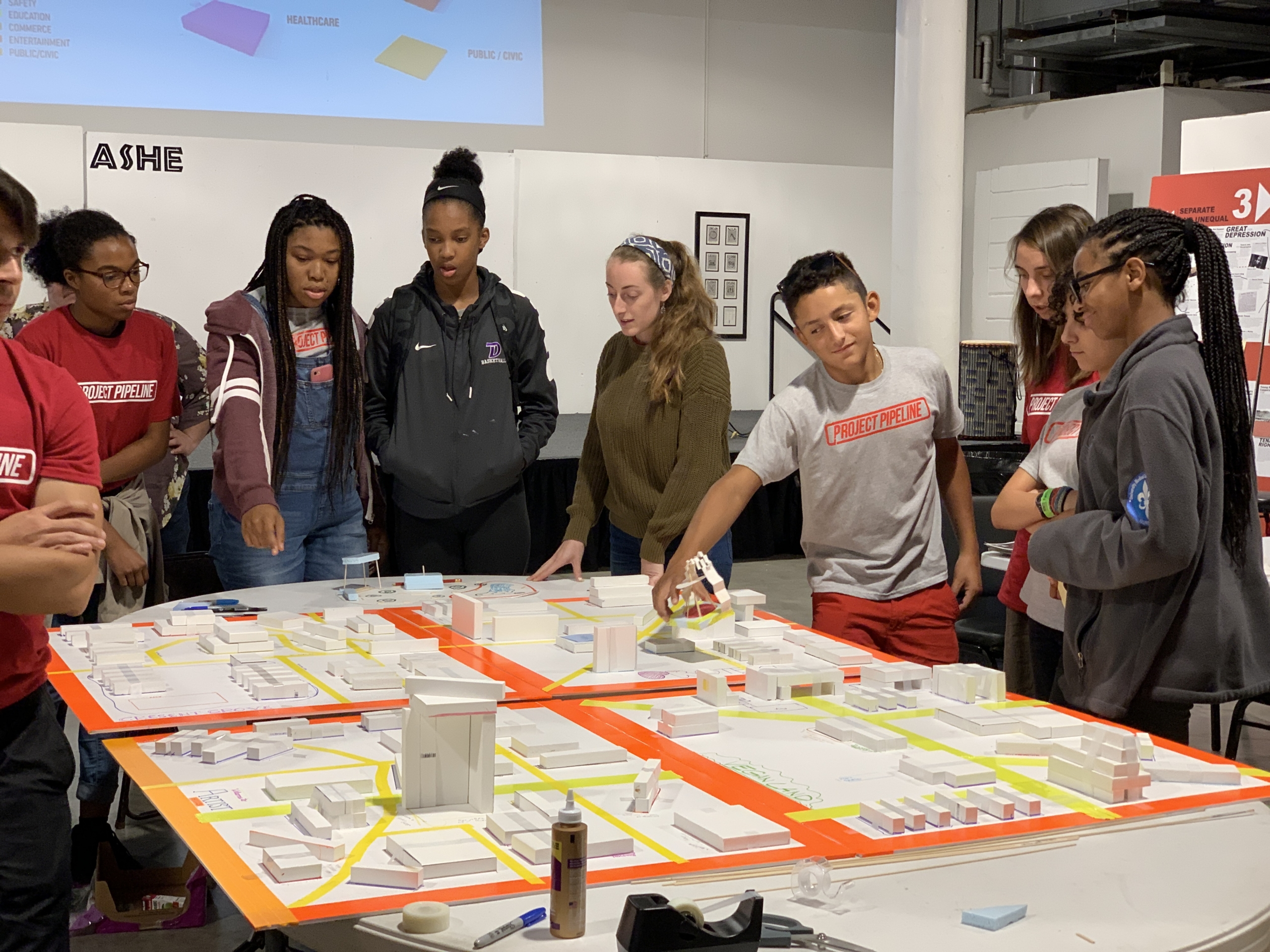
After they have each completed one round of design iteration, the board is passed to the next team and discussions begin about design changes desired by the next team. Students explain their design intentions to the next team upon which they will build and add their own ideas.
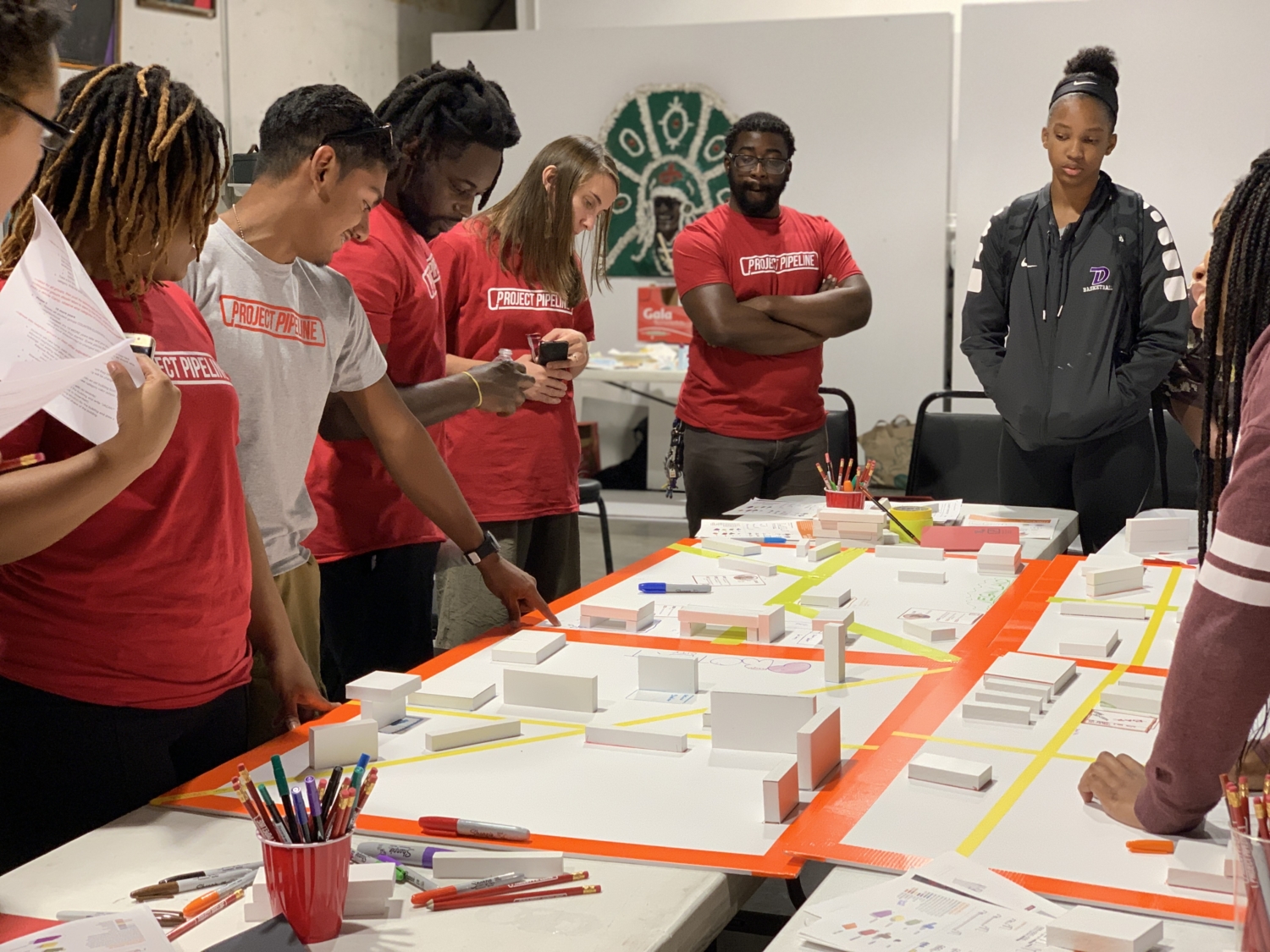
Students present their ideas to their mentors.
To better understand the impact that this camp is having on not only the students but the mentors as well, we asked for a few participants to share their experiences.
Keren Zempoalteca, High School Senior and First-Year Camp Attendee:
During the week, I learned so much stuff and details I didn’t even know architects have to take into consideration when starting a project, like, the community and their needs, and that amazed me. When doing the projects, I was surprised that they made such an effort to send bags with some materials we would be needing during the week. All the leaders were really involved with every student’s ideas and gave incredible feedback. Even though it was my first and last year in the camp, I feel thankful I experienced this, as it clarified my desire to continue pursuing this major.
Josephine (Josie) Messina, High School Sophomore and 2nd Year Camp Attendee:
The 2020 NOMA Louisiana Project Pipeline Camp was a very exciting program that I went to this summer. I had gone to it last summer when it was in person and made many connections with the mentors there helping us. It was a very smooth transition to the virtual format and was planned out very well. The activities that we got to do helped me learn about my community and the way architecture can help improve it. We focused on the need of the people living there and how that shapes where things are and how they function.
Kiwana T. McClung, First Year Camp Mentor:
As an Associate Professor and the advisor to the UL Chapter of NOMAS, I mentor several current design students. However, my lack of proximity to New Orleans made it hard for me to participate in past Project Pipeline camps. The camp being virtual this year made it easier for all, giving me a chance to connect with potential design students, while witnessing first-hand the amazing fount of talent we have in the state of Louisiana. The NOMA Louisiana cohort, as well as the campers, made it a profound experience and I am looking forward to participating again next year.
Teva Kaplan, Camp Mentor 2017-2020:
This was my third year as a mentor for Project Pipeline. One of my favorite moments each year is helping the kids explore their own neighborhood through the lens of equitable architecture. It’s so powerful to see them shift from thinking about the material as a material to realizing what that space could actually mean for their neighborhood if their design existed. It usually happens between days two and three. I think that’s the moment when kids realize their own agency and ability to create positive change in places they love. Project Pipeline gives a quick and tactile introduction to foundational architecture skills in a creative and accessible way.
It is clear that this program has fostered a space for creativity, voice, and social justice in the heart of New Orleans. To learn more about this program or find a Project Pipeline program near you, visit their website at http://nomalaprojectpipeline.org/.
Each year, Study Architecture curates a full list of summer programs (virtual and in-person) from across the country and publishes it here. Check back in the spring of 2021 to see the full list. If you are curious, check out the 2019 and 2020 list.

